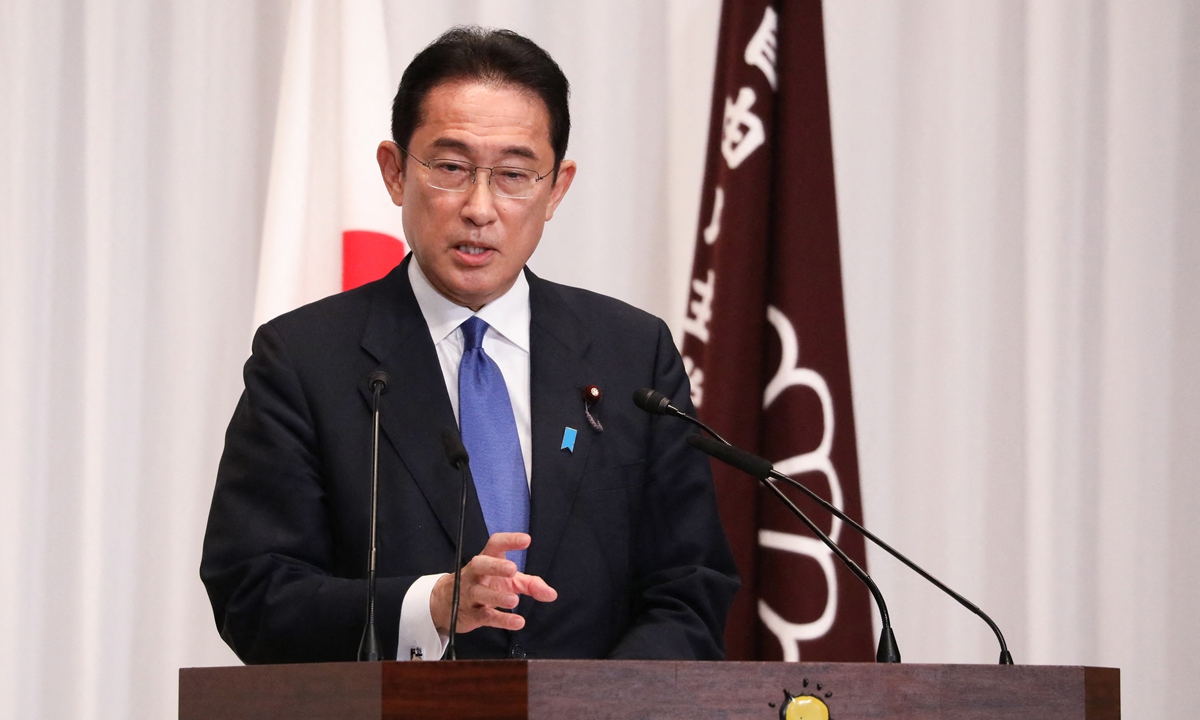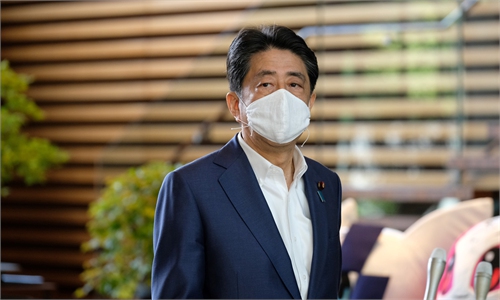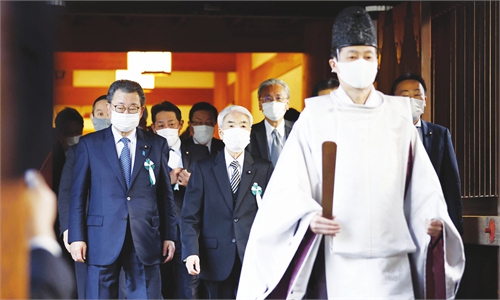
Photo: Fumio Kishida, former foreign minister, speaks during a press conference after being elected as the new leader of the ruling Liberal Democratic Party (LDP), at the LDP headquarters in Tokyo on Wednesday. Photo: AFP
Japanese Prime Minister Fumio Kishida vowed on Monday to reinforce the country's defense, saying Tokyo will look into options including acquiring the capability to strike enemy bases. He made the remarks on the opening day of the Japanese Parliament's extra session.The Japanese government has been carving up its pacifist constitution with salami-slicing tactics. In fact, Japan has made more and more bold breakthroughs and attempts in areas related to the military, security and defense, and especially in the positioning of its role in the US-Japan military alliance. Tentative claims such as boosting the ability to attack enemy bases are part of Japan's post-WWII, particularly post-Cold War, efforts to get rid of the limits set by the pacifist constitution.
Some scholars in Japan argue that even though he is talking tough, Kishida as a dove did not give any details about what weapons Japan will develop or purchase and how the country will increase its ability to attack enemy bases. And thus, what Kishida meant in his speech is more to show toughness against China.
Nonetheless, when it is about military security, Japanese politicians, be they doves or hawks, only differ in how far they want to go. There is no substantial difference between them. That is to say, both doves and hawks are paranoid about the "China threat theory." Therefore, anyone who takes office will say something about this topic. Although there are factional struggles within the Liberal Democratic Party (LDP), and Kishida is likely to face pressure from within his own party as a dove, there should probably be more consensus than differences in the LDP's approach to China.
Several Japanese politicians, including former prime ministers Yukio Hatoyama and Yasuo Fukuda, have recently spoken about the need to improve China-Japan relations. But such voices that advocate cooperation and dialogue with China have become weaker and weaker.
Japan is spending more and more on defense in recent years. The start of this phenomenon can be traced back to 2012 when Shinzo Abe took office. Starting in fiscal 2013, Japan's defense budget has been increasing rapidly year by year. Japan's defense budget for fiscal 2022 is expected to exceed 6 trillion yen ($52.8 billion) for the first time, making total defense spending above the threshold of 1 percent of the country's GDP. Yet, Kishida has said he is planning to raise the number to 2 percent of GDP. Frankly speaking, this is very threatening.
The increase in Japan's defense budget is both for the country's own good and for the US. On one hand, one thing is clear about the defense policy of the Kishida administration: Japan will continue to emphasize its autonomy in defense, which needs a considerable military budget to pave the way.
The autonomy here means that if the US-Japan alliance does not work at critical times, or if the US does not respond to Japan's call for help in time as it promises, Japan should have the ability to help itself.
On the other, it is also intended to support the US' deployment of its military forces in the Indo-Pacific region and Washington's overall Indo-Pacific Strategy in terms of the military. For example, the US has been requesting Japan to pay more for hosting American military forces. And Japanese diplomatic sources confirmed on Sunday that Japan has agreed to increase its host nation support starting from the next fiscal year.
However, increasing Japan's military spending will not be an easy task for the current administration. In late November, Kishida's cabinet earmarked 773.8 billion yen ($6.7 billion) as a supplemental defense budget for fiscal 2021. Japan probably does not have sufficient financial resources to guarantee such a large increase, as the country's budget deficit has reached a rather alarming level. In short, Tokyo has the will but not the capability of increasing its defense budget.
As there is still the possibility that Japan will make more moves to overstep the boundaries in the future, we need to continue to be wary of Tokyo's increased cooperation with Washington in the area of military security. We also need to be alert to Japan's actions in China's surrounding waters, such as proactively meddling in the Taiwan question. Control of the gray zone between China and Japan will become an issue that China and China-Japan relations may have to face next. China should also be well prepared in this regard.
The author is an associate research fellow at the Center for Japanese Studies, Fudan University. opinion@globaltimes.com.cn



